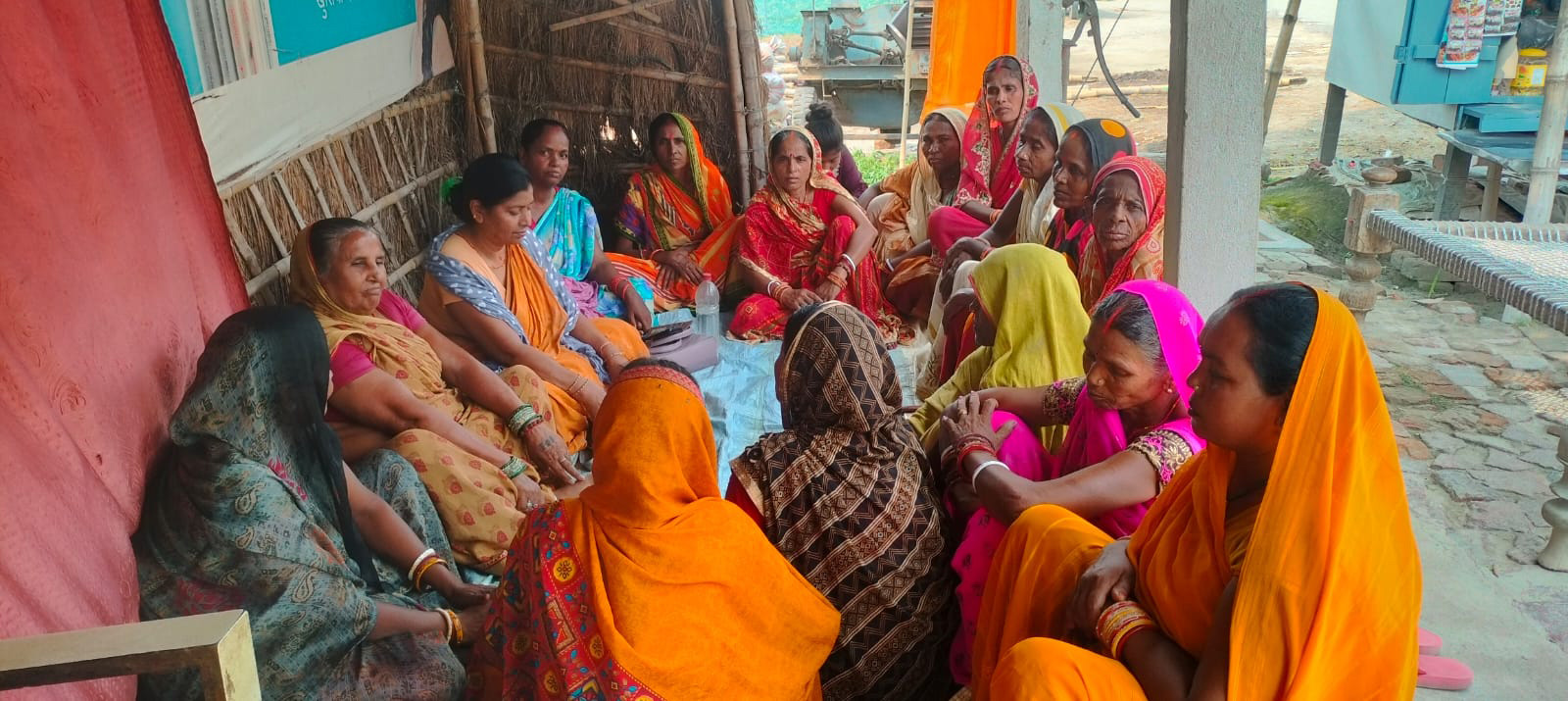How often do you see women from a small neighbourhood come together to talk about the issues that shape their lives? How many times have you seen such conversations happen in a litchi farm, or in a shared community space? It’s happening in Bihar. Women are gathering, questioning, and asking the questions that matter most.
Rita Devi carries the weight of both poverty and patriarchy. A daily wage labourer and mother of three in Muzaffarpur, she couldn’t afford to educate her two elder sons, both were pulled out of school early to support the family. But when it came to her youngest daughter, she drew the line.
In her community, most girls drop out by the end of Grade 6. But Rita’s daughter not only stayed in school, she passed her Grade 12 board exams with first division. And today she is pursuing a Bachelor’s degree.
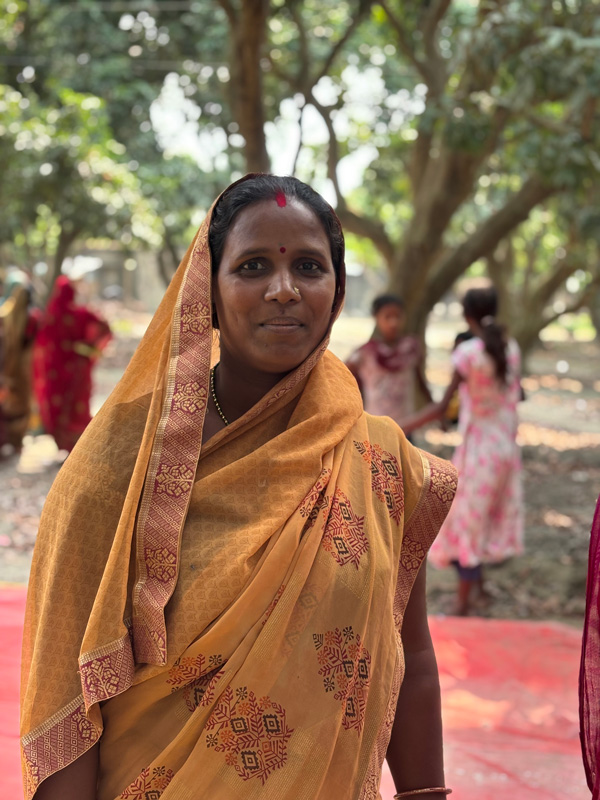 |
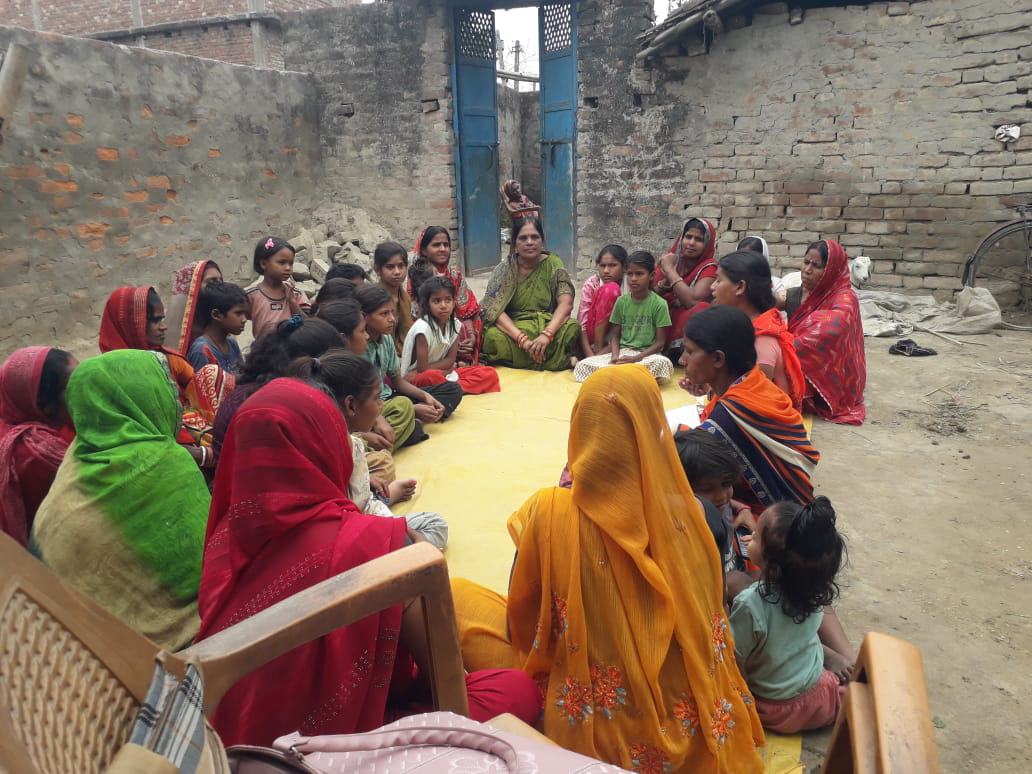 |
“मैं अपने पहले दो बच्चों को पढ़ा नहीं पाई। घर चलाना था, आमदनी का कोई साधन नहीं था, मजबूरी थी। लेकिन मैंने ठान लिया कि मेरी बेटी स्कूल ज़रूर स्कूल जाएगी। हर कोशिश की । आज वह बीए कर रही है। अब मैं दूसरी माँओं से कहती हूँ—शादी से पहले पढ़ाई ज़रूरी है। पढ़ेगी तो समझेगी, समझेगी तो बदलेगी।”
“I couldn’t educate my first two children. We had to run the household, and there was no steady income. It was a hardship. However, I made up my mind that my daughter would definitely attend school. I did everything I could.. Now, I tell other mothers that education must come before marriage. If she learns, she will understand; if she understands, she will bring change.”
A few villages away, Kavita Kumari lives with a physical disability that affects her left leg. With a BA in Sociology, she works at the grassroots level with forums such as Jyoti Mahila Samakhya and Kishori Manch. But Kavita’s real power lies not in her credentials, it’s in the questions she asks to women across communities:
“Why don’t you send your daughter to school?”
“Do you want her life to look like yours?”
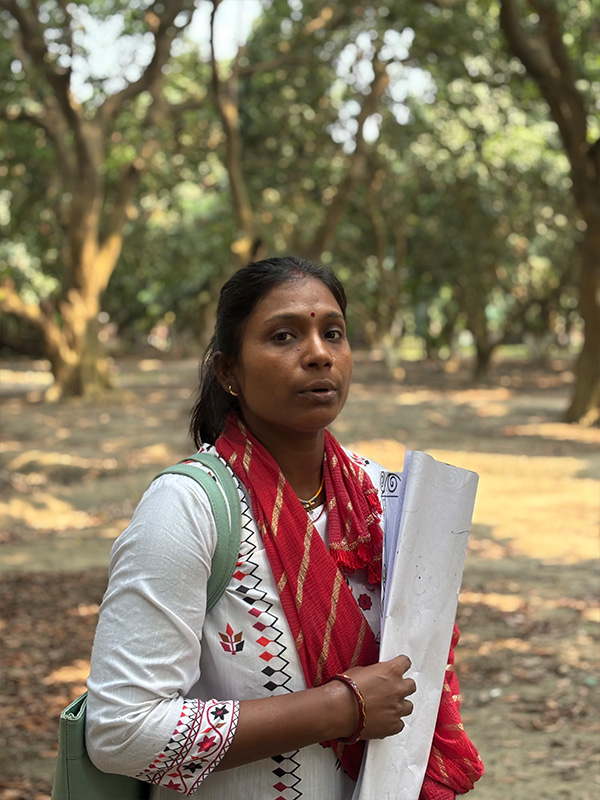 |
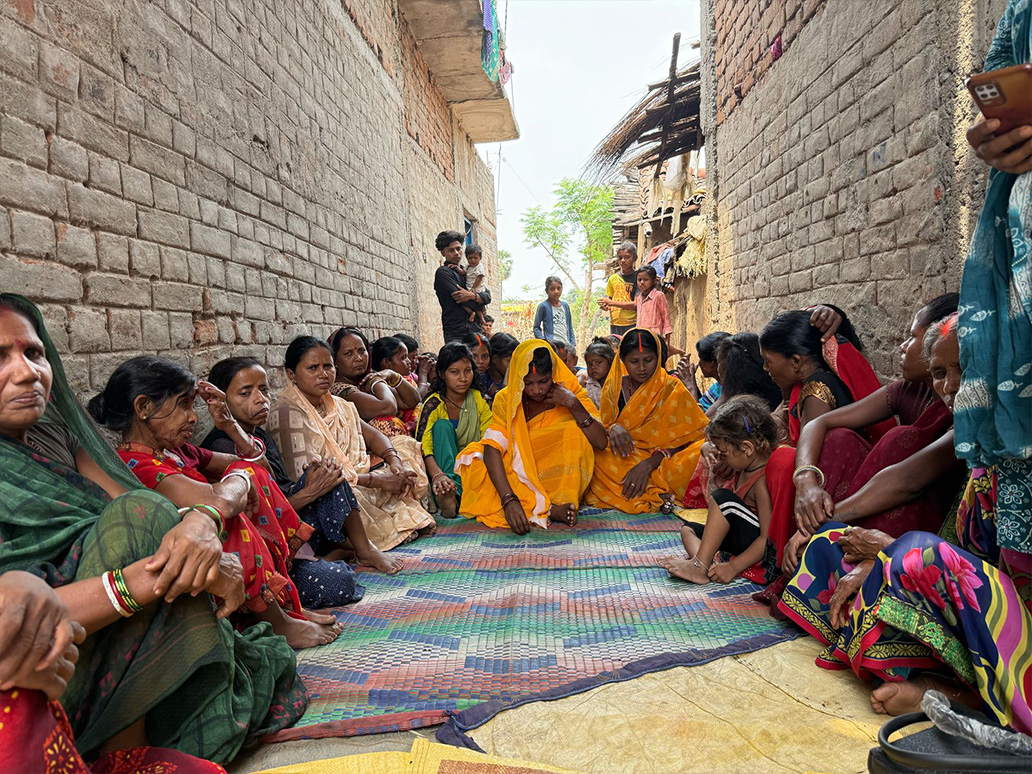 |
In a world that too often tells women what to do, Kavita’s strength lies in helping them ask why, and reflect on possibilities. She regularly mentors adolescent girls in her village, advising them about gender, dignity, and constitutional rights, and questions the status quo. For many of them, it’s the first time they’ve been encouraged to question their strongly held beliefs, and in turn imagine a different future for themselves, and their families.
The Power of Shiksha Chaupals
We met Rita and Kavita at Shiksha Chaupals in Mushari block of Muzaffarpur, community gatherings that have become platforms for grassroots change. These aren’t lecture halls or formal meetings. They’re spaces where women like them lead conversations that matter.
At the Chaupals, Rita is more than just a participant. She knows every girl in her community who has dropped out and makes it a point to visit their homes. Outside the gatherings, she speaks directly to parents, urging them to rethink, to wait, and to let their daughters study just a little longer.
Kavita anchors these discussions differently. She listens, reflects, and gently asks questions that make the group think.
Change begins with dialogue. And some of the most powerful conversations happen in these community-owned spaces.
Why Bihar, Why Now
Bihar has one of the highest dropout rates among girls in the country. According to UDISE+, over 33% of girls don’t make it past secondary school. The Gross Enrollment Ratio (GER) in higher education for Bihar was just 17.1% in 2021–22. The reasons are familiar: early marriage, domestic work, poverty, and caste barriers. For girls like Kavita, living with a disability, the barriers are even higher. They are often seen as a burden, denied mobility, visibility, or choice.
But Rita and Kavita also remind us that data isn’t destiny.
In communities where formal interventions rarely reach, women like them have become the force that keeps girls in school and helps families reimagine what’s possible for their daughters.
Women Leading from the Ground Up
This is what women’s leadership looks like. Rita visits homes one by one. Kavita asks questions that plant seeds of doubt about age-old practices.
Both of them create ripples of change that spread from family to family, girl to girl.
Their leadership emerges from lived experience, from understanding exactly what it means to fight against the odds. They lead not from positions of power, but from deep wells of conviction about what their communities need.
About the Authors
Sushant Kumar
A Political Science graduate from Banaras Hindu University and a Masters in Education from Azim Premji University, is a passionate writer, editor and facilitator. Currently, he is part of the strategic functions team at Mantra4Change. He can be reached at sushant@mantra4change.org
Stories like Rita’s and Kavita’s are happening across India every day. Follow us on Instagram, LinkedIn, and X where we share the journeys of women leaders who are quietly transforming education in their communities, one story at a time.

